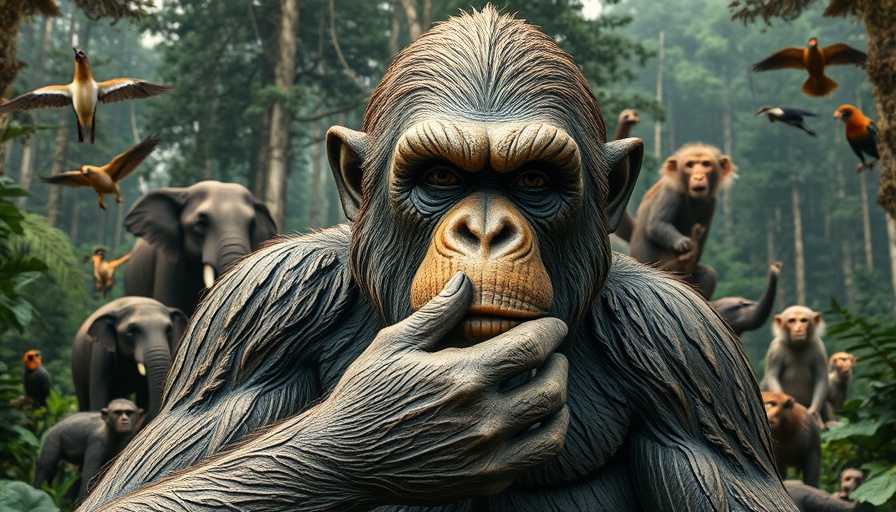
The Cost of Human Hubris: A Critical Look at Exceptionalism
In the grand narrative of evolution, the story of humanity is one of remarkable intellect and innovation, driven largely by our extraordinarily developed brains. However, this same intelligence is now putting our planet at risk, largely due to our tendency to view ourselves as separate from and superior to the natural world around us. Christine Webb, author of The Arrogant Ape: The Myth of Human Exceptionalism and Why It Matters, asserts that this mindset is the cornerstone of our current ecological crises.
Understanding Human Exceptionalism
Human exceptionalism refers to the belief that humans, due to our unique abilities, are fundamentally different from and superior to all other forms of life. This perspective is deeply ingrained in many cultural, religious, and scientific interpretations—often blinding us to the interconnectedness of life on Earth. Webb argues that this assumption leads to a devastating consequence: the presumption that nature is simply a resource to be exploited at our convenience, without regard for its integrity.
Historical Context of Superiority
Webb’s exploration of human exceptionalism isn’t just a critique of modern culture; it traces its roots back to ancient traditions, highlighting that the notion of human superiority is longstanding. Literary works, from Shakespeare labeling man the 'paragon of animals' to Linnaeus positioning humans at the pinnacle of biological classification, perpetuate an anthropocentric worldview. This view fosters a belief in human entitlement over nature, prompting destructive policies and practices that endanger life on Earth.
A Call for Humility and Change
In her talks and writings, Webb emphasizes a transformative approach by advocating for humility. She posits that acknowledging our shared existence within ecological systems is crucial to addressing the ecological crisis. “Shedding this anthropocentric lens can yield humbling realizations and impart true wisdom,” Webb says. Recognizing the intrinsic value of all species can inspire proactive measures for conservation and sustainable living.
Future Implications and Strategies
Researchers at Northeastern University echo Webb’s assertions, pointing out that human exceptionalism has severe implications for our engagement with environmental action. As the West continues to influence global perspectives, understanding how we view—and often alienate—nature will be pivotal for fostering environmental stewardship. Implementing interventions grounded in social and cognitive sciences provides a pathway for altering how individuals perceive their roles within ecological systems, empowering them to take action for nature.
Why This Matters for Older Adults
For retired individuals and seniors, maintaining a connection to nature can contribute significantly to emotional and physical well-being. As we age, creating a balanced and sustainable lifestyle becomes essential. Engaging with the environment, whether through community gardening, participating in local conservation efforts, or simply spending time in nature, can provide a sense of purpose and enhance mental health. Understanding the importance of ecological integrity not only benefits nature but also enriches our lives.
Considerations for Retirees in Muskegon
This conversation about human exceptionalism should resonate deeply with those navigating retirement. As you consider practical steps for financial and personal growth, integrate sustainable practices into your lifestyle. Exploring local resources for sustainable living or considering investment in community initiatives can support both financial well-being and the health of the planet.
During retirement, embracing humility toward nature is as essential as adopting smart financial strategies. Whether it’s cultivating gardens that support biodiversity or participating in community efforts to protect the local environment, every action contributes to a larger change. Let's harness our collective power, proving that our intelligence includes not just our capacity for industry, but our ability to coexist with nature harmoniously.
Taking steps towards understanding the ecological challenges while living sustainably will make a difference not just for future generations but can also enhance your quality of life today.
 Add Row
Add Row  Add
Add 




Write A Comment